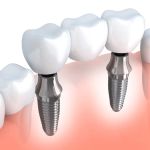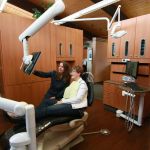How to Care for Teeth After Oral Surgery
Oral surgery can be a vital treatment for many dental issues, from tooth extractions to gum surgeries. However, recovery can take time and requires special care to ensure the best possible healing process. As someone who recently underwent oral surgery, I know how important it is to follow specific aftercare guidelines to avoid complications and promote a smooth recovery. Below, I'll share tips on how to care for your teeth after oral surgery based on my personal experience and expert advice.
1. Follow Your Dentist’s Aftercare Instructions
The first and most important step after any oral surgery is to follow the specific aftercare instructions provided by your dentist. Each surgery is different, and your dentist will give you a personalized recovery plan. Whether you’ve had a tooth extraction, a dental implant, or gum surgery, your dentist’s recommendations are crucial for your healing.
For example, after my wisdom teeth extraction, my dentist advised me to avoid chewing on the side of the surgery for a few days to prevent disturbing the area. He also emphasized the importance of keeping the surgical area clean but not brushing directly on the incision sites for the first few days. This might sound basic, but following these small details can make a huge difference in the outcome of your recovery.
2. Manage Pain and Swelling
It's perfectly normal to experience pain and swelling after oral surgery. In fact, swelling usually peaks 24-48 hours after surgery. My personal experience was that I had some discomfort for the first couple of days, but with the prescribed painkillers and cold compresses, I was able to manage it effectively. Cold compresses can help reduce swelling and ease pain, while pain medications help you stay comfortable as your body heals.
If you experience persistent pain beyond the first few days, it’s crucial to contact your dentist for advice. Sometimes, swelling and pain could indicate complications like infection, and it's always better to be cautious and reach out to a professional for guidance.
3. Keep the Area Clean and Prevent Infection
Oral hygiene is incredibly important after surgery to prevent infection. After my surgery, my dentist recommended using a saltwater rinse after 24 hours to gently clean the surgical area. This rinse helps to keep the site free of bacteria without causing irritation to the healing tissues. I made sure to avoid using mouthwash with alcohol during the first few days, as it can irritate the surgical area.
Additionally, brushing your teeth gently (avoiding the surgical site) is essential to maintain oral hygiene. I was also advised to avoid smoking, as it can impede the healing process and increase the risk of infection.
4. Maintain a Soft Diet
During the first few days after surgery, I stuck to a soft diet. This is crucial to avoid irritating or damaging the surgical area. My meals consisted of mashed potatoes, yogurt, scrambled eggs, and smoothies—foods that are easy to chew and won’t put stress on your healing gums or teeth. Avoiding hard or crunchy foods (like chips, nuts, or raw vegetables) is essential to prevent accidental damage.
As I recovered, I gradually added more solid foods back into my diet, but always being mindful not to chew too forcefully near the surgical site. My dentist also reminded me to drink plenty of fluids, but to avoid using straws, as the suction could dislodge the healing tissue.
5. Be Patient and Give Yourself Time to Heal
One of the most important things I learned during my recovery is the importance of patience. Oral surgery takes time to heal properly, and while the discomfort may subside within the first few days, full recovery can take weeks. I gave myself permission to take things slow and not rush the healing process. During this time, I avoided strenuous physical activities and made sure to rest.
In my experience, following these aftercare guidelines not only helped me heal quickly but also minimized the risk of complications. Each person’s recovery will vary, but by following your dentist's advice and being gentle with your oral care routine, you’ll set yourself up for a smooth recovery process.
6. When to Contact Your Dentist
While most oral surgeries go smoothly, there are certain signs that could indicate a problem during the recovery period. I learned that if you experience severe pain that doesn’t respond to medication, excessive bleeding that doesn’t stop after a few hours, or a fever, it’s crucial to contact your dentist. Early intervention can help prevent more serious complications.
By following these tips and remaining mindful of your body’s healing process, you can help ensure a smooth and successful recovery from oral surgery. Whether you're recovering from a simple tooth extraction or a more complex procedure, proper care will make all the difference.
If you're looking for reliable products and services for your oral care, you can visit 【Dentistry Toothtruth】 for great recommendations on oral health products and professional services that will aid in your recovery process.







 Perry L Jeffries DDS and Associates PA - Raleigh2.0 (53 review)
Perry L Jeffries DDS and Associates PA - Raleigh2.0 (53 review) Almond Dental Maple Grove4.0 (413 review)
Almond Dental Maple Grove4.0 (413 review) Waterford Dental Health4.0 (1118 review)
Waterford Dental Health4.0 (1118 review) Bismarck Advanced Dental and Implants4.0 (657 review)
Bismarck Advanced Dental and Implants4.0 (657 review) Chalet Dental Care5.0 (739 review)
Chalet Dental Care5.0 (739 review) Straumann USA LLC3.0 (10 review)
Straumann USA LLC3.0 (10 review) The Importance of Oral Health Education During Pregnancy for a Healthy Pregnancy
The Importance of Oral Health Education During Pregnancy for a Healthy Pregnancy Best Tips for Brushing Your Teeth Properly for Healthy Gums: Essential Techniques for Oral Health
Best Tips for Brushing Your Teeth Properly for Healthy Gums: Essential Techniques for Oral Health Why Skipping Dental Checkups Can Lead to Bigger Oral Health Problems
Why Skipping Dental Checkups Can Lead to Bigger Oral Health Problems Advantages of Porcelain Dental Restorations
Advantages of Porcelain Dental Restorations How Can Diabetes Cause Tooth and Gum Problems? Preventing and Managing Oral Health Issues
How Can Diabetes Cause Tooth and Gum Problems? Preventing and Managing Oral Health Issues Healthy Habits for Promoting Good Oral Health and Hygiene: Tips for a Healthy Smile
Healthy Habits for Promoting Good Oral Health and Hygiene: Tips for a Healthy Smile